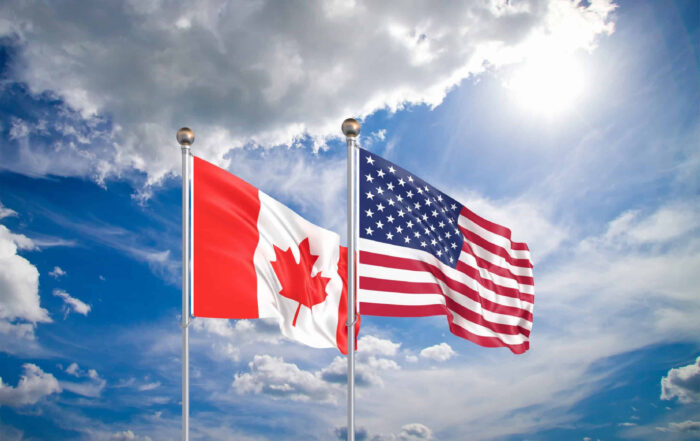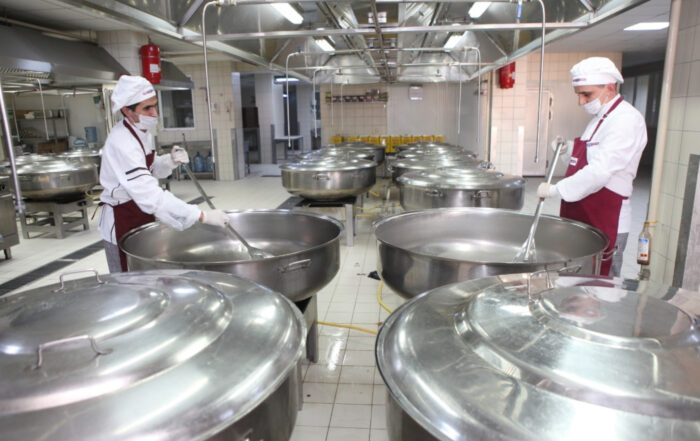Canada–U.S. Food Safety Systems Recognition Arrangement: What It Means for Cross-Border Trade and Compliance Strategy
A New Era of Trust: Mutual Recognition of Food Safety Systems
In July 2024, the Canadian Food Inspection Agency (CFIA) and the U.S. Food and Drug Administration (FDA) formalized a Food Safety Systems Recognition Arrangement (FSSRA). This milestone agreement recognizes that each country operates a comparable regulatory food safety system.
For importers, exporters, and manufacturers involved in cross-border food trade, this recognition introduces significant opportunities and new strategic considerations.
Why This Matters Now
The FSSRA could not come at a more pivotal moment. With global supply chains in flux due to geopolitical instability, economic nationalism, and food security concerns, Canada and the U.S. are choosing regulatory alignment over divergence.
The FSSRA promotes:
- Regulatory cooperation and reduced inspection duplication
- Faster clearance of compliant goods at ports of entry
- Greater transparency in outbreak or incident communication
- Harmonized risk-based oversight across the border
At MCS Associates, we view this not as a passive agreement but as a strategic lever companies can use to optimize compliance posture, streamline trade, and strengthen their market positioning.
What Is “System Recognition”?
Unlike equivalency, which compares specific rules, system recognition means both countries accept each other’s entire food safety framework from legislation to inspection programs to enforcement capacity.
This includes:
- Legislative authorities
- Preventive control mandates
- Inspection and audit procedures
- Risk assessment capabilities
- Compliance and enforcement approaches
For eligible food sectors, this could translate into fewer inspections, streamlined documentation, and a smoother compliance journey.
Implications for Canadian Exporters to the U.S.
If your company exports to the U.S., here’s how you can benefit:
Reduced Entry Delays
Facilities already registered with CFIA and compliant with SFCR may face fewer FDA border holds, provided traceability and preventive controls are demonstrably in place.
Opportunity to Leverage SFCR Compliance
Your Canadian Preventive Control Plan (PCP) is now officially recognized as being on par with U.S. FSMA standards which may reduce the need for dual paperwork, audits, or redundant hazard documentation.
Increased Competitive Edge
Customers in the U.S. are now more likely to view Canadian facilities as low-risk a major advantage in sectors like seafood, produce, dairy, or processed foods.
Implications for U.S. Exporters to Canada
U.S.-based companies and foreign suppliers who distribute into Canada also benefit:
Lower Audit Fatigue
Importers into Canada who rely on U.S.-based suppliers operating under FDA compliance may face fewer CFIA verifications or border inspections under the recognition umbrella.
Harmonized Food Safety Language
Having both systems recognize preventive controls, sanitation protocols, traceability, and hazard analysis under a shared framework enables suppliers to operate more efficiently across borders.
Accelerated Licensing
The CFIA may apply modified import licensing or inspection requirements for foods originating in jurisdictions covered under the FSSRA.
What the FSSRA Does Not Replace
It’s important to note this recognition does not create a regulatory shortcut. Canadian and U.S. import/export businesses must still comply with:
- Specific commodity regulations
- Labeling and language laws (e.g., bilingual packaging in Canada)
- Product standards and tolerances
- Registration and import permits
- Importer responsibilities under SFCR/FSMA
However, system recognition improves mutual trust and when used properly, helps compliant companies reduce risk and increase operational fluidity.
Strategic Considerations for Clients
As regulatory consultants, MCS Associates sees a clear path forward for both domestic and cross-border clients to capitalize on this new framework:
- Gap Assessments for Bilateral Compliance
Even if your facility is SFCR-compliant, we can help you assess whether your PCP, traceability, recall plans, and food defense protocols also meet FSMA expectations and vice versa.
- Trade Readiness Mapping
We assist clients in mapping export/import documentation across both systems especially for clients who’ve faced delays or detentions under past non-harmonized expectations.
- Dual-System Training Programs
Train your staff to understand both U.S. and Canadian food safety terminologies, enforcement styles, and auditing practices a must for compliance and communication clarity.
- Labeling & Border Packaging Compliance
Just because your facility is recognized doesn’t mean your packaging is. Our team can ensure your labels meet Canadian bilingual requirements, Health Canada tolerances, and U.S. FDA format rules.
Geopolitical Insight: Why This Arrangement Matters
With rising tension in global trade, and increasing emphasis on regional food security, this recognition can strengthen continental resilience. But it also introduces new regulatory complexity for firms navigating:
- Parallel U.S.–Canada requirements
- Different incident response systems
- Provincial/state-level enforcement nuance
- Bilateral dispute processes
MCS Associates helps clients view this complexity as a competitive advantage—and prepares them to operate with agility across both regimes.
Conclusion: Regulatory Recognition Is the Floor, Not the Ceiling
The CFIA-FDA recognition arrangement confirms what many of us already knew: Canada and the U.S. have world-class food safety systems.
But recognition is just a foundation. Your ability to leverage it strategically, close remaining compliance gaps, and build a flexible, export-ready quality system will determine your success in this new landscape.
Ready to Position Your Business for Bilateral Growth?
MCS Associates offers:
- Development of your customized PCP
- Regulatory gap assessment on your existing PCP
- Supporting you during CFIA’s on-site/virtual PCP Verification Inspections
- Cross-system PCP audits
- Regulatory gap Assessment of your Food Safety Plan against FSMA
- Regulatory gap assessment on your Foreign Supplier Verification Program (FSVP)
- Conducting risk assessments on your importation/exportation circumstances as needed
- Communicating with Canada Border Service Agency (CBSA) on your behalf for obtaining permits for products such as dairy, meat, etc.
- Compliance verification of your foreign suppliers with SFCR & FSMA
- Label & document harmonization
- Importer/exporter regulatory navigation
- Food safety training tailored to SFCR & FSMA
Let’s talk about how your business can lead and not lag in this new binational food safety framework.
To learn more or to request regulatory or quality support, please contact us at: enquiries@mcs-associates.com
#FoodSafety #FSSRA #CFIA #FDA #PreventiveControlPlan #SFCR #FSMA #CanadaUSTrade #FoodImportExport #MCSAssociates #RegulatoryAffairs #ComplianceConsulting #CrossBorderTrade #GapAssessment #FoodSystemRecognition#ReenaGroupInc







